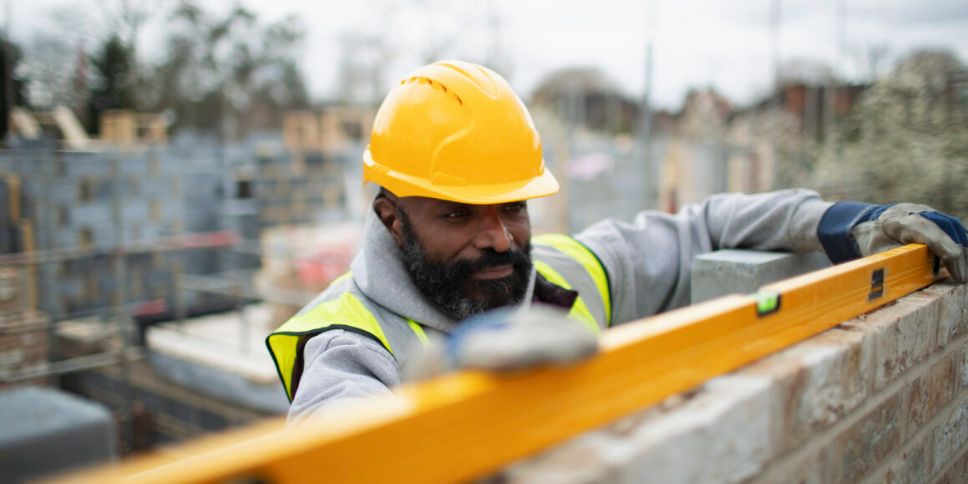Tips for tradespeople to prevent theft and protect your wellbeing

If you’re a tradesperson then there’s sadly a good chance that you - or someone you know - will have been a victim of theft.
The threat of theft and violence has become so prevalent in the industry that it’s putting a strain on the mental health of some tradespeople.
This means that it’s more important than ever to be vigilant and do what you can to avoid becoming a victim of crime.
But it also means looking after yourself and seeking help if you need it.
The threat of crime
Sadly, crime is very common for people working in the trade industry. More than 173 in 500 tradespeople (35%) say they or one of their employees have experienced site theft in the last 12 months, according to research we conducted in January 2025.
In the last 12 months alone, 33% of those surveyed said they had experienced theft from their vehicle, nearly a fifth (16%) had experienced their vehicle being stolen, over 1 in 10 (14%) were victims of business premises crime.
But there are things you can do to keep your tools, equipment, materials and vehicles safe from crime. Here are some steps you can take to help avoid becoming a victim of crime:
- Where possible, avoid storing tools and equipment in vans: a robust, lockable building is preferable.
- If you have to leave tools and equipment in a van, make sure it’s alarmed and, as a minimum, park against a wall so that doors cannot be opened as easily.
- Don’t leave tools or equipment on display; and avoid leaving any tools (e.g. hammers, crowbars) lying around anywhere – including on site.
- Store portable items in a robust, lockable store that is fixed in place.
- Restrict and control access for vehicles to the work site.
- Consider a video security system; for site use, temporary systems and temporary intruder alarm systems are available.
- Security mark your tools and equipment – for example with forensic, engraving or permanent marking – to deter thieves and aid recovery.
- Don’t stockpile high value materials such as lead and copper; and don’t leave them around for longer than necessary.
- For construction vehicles use CESAR marking, tracking and immobilisation to prevent and trace thieves.
- Check all locks and security measures before leaving any site: for example, ensure alarms are switched on, cameras face the right direction and security lights are working.
Fear of theft and violence puts a strain on mental health
As well as causing big financial losses, being a victim of crime or living under its threat can understandably take its toll on your mental health.
More than one in five tradespeople say one of the biggest impacts of equipment theft is stress and mental health struggles.
Yet, these problems often aren’t acknowledged. Our research also showed that 16% say working alone/feeling isolated is one of their biggest concerns in relation to the security of their business.
Help is available
NFU Mutual is a proud supporter of Samaritans, a charity which offers round the clock emotional support to anyone struggling to cope. Since 2020, Samaritans has been one of the organisations to receive donations from the NFU Mutual Charitable Trust, receiving a total of £315,000.
Jason Jaspal, Assistant Director of Business Development at Samaritans, says: “Samaritans offers a listening ear and a safe space to share how you’re feeling 24 hours a day, 365 days a year. It’s vital that tradespeople reach out for support when they are finding life tough, rather than letting things build up and potentially reaching a crisis point. It doesn’t matter what they’re finding challenging, Samaritans is here so they don’t have to face things alone.”
Anyone can contact Samaritans free anytime from any phone on 116 123, even a mobile without credit. This number won’t show up on your phone bill. Or you can visit www.samaritans.org

Builders and Trades Insurance
We know that there is no "one size fits all" solution when it comes to builders and trades insurance, so we work to cover your business against the key risks that you face by helping you tailor it to your business.